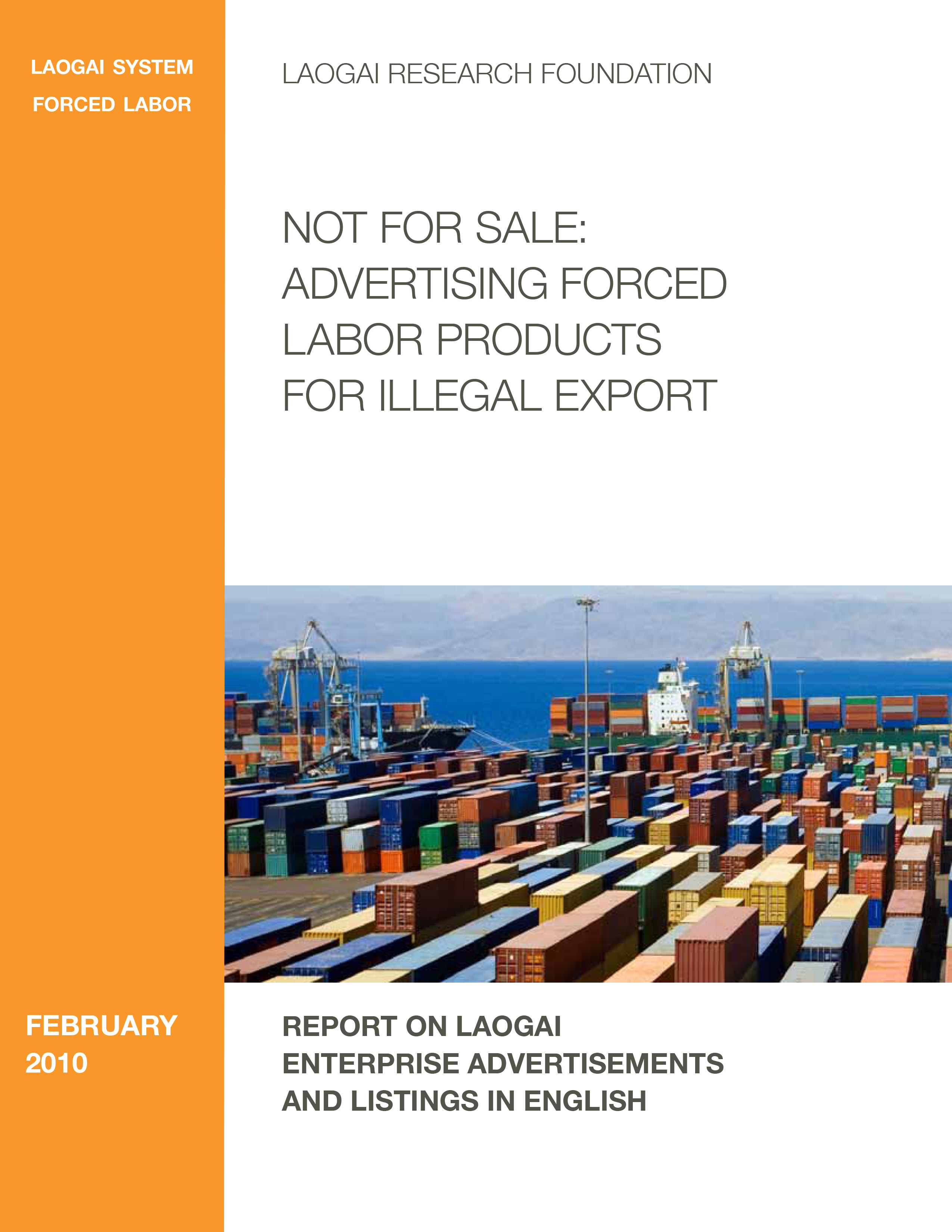Since its inception, the Laogai Research Foundation (LRF) has been on the forefront of investigating and tracking the importation of products made in Chinese Laogai labor camps. The importation of Laogai labor camp products into the US not only violates American law, but also international human rights norms. China's vast network of Laogai labor camps is one of the most extensive and repressive prison systems in the world, with an estimated 3-5 million current inmates. Approximately 40-50 million people have been incarcerated in Laogai labor camps since the communist "liberated" China in 1949.
We are committed to documenting the atrocious working conditions under which Laogai prisoners labor, the importation of Laogai products to the United States, and the failures of both the Chinese and United States governments to uphold their respective laws and agreements banning the international trade of Laogai products. In 1991, LRF Exceutive Director Harry Wu's undercover work filming Laogai operations and enterprises was featured on major international news outlets, including an in-depth investigative report with Ed Bradley on the television show 60 Minutes. These programs first introduced the Laogai system to Western audiences.
Sadly, although not unexpectedly, increased exposure of the Laogai system has led to further secrecy and evasion by the Chinese government. After the Laogai system received internationl scrutiny in the early 1990's, the Chinese government ceased using the word Laogai to describe the prison camps. They instead began to officially refer to these camps as "prisons" (jianyu). Conditions remain exactly the same despite the name change.
In order to maintain the system’s profitability in the face of international condemnation and import restrictions, Chinese officials have developed methods for surreptitiously exporting Laogai products in order to avoid detection. This report expands on LRF’s previous works exposing the trade of products produced by Chinese slave labor. Other LRF relevant publications include the Laogai Handbook: 2007-2008 and Laogai Forced Labor Camps Listed in Dun & Bradstreet Databases, which are both available on our website (www.laogai.org). Our Laogai Handbook lists all known Laogai camps in China and the report Laogai Forced Labor Camps Listed in Dun & Bradstreet Databases details 314 entries for Laogai enterprises listed in the international business database Dun and Bradstreet. Our key findings in this current report include the following:
• Over 100 Laogai enterprises are advertising or are listed in English on the Internet, suggesting the intent to export Laogai products to international markets, including the US;
• In many cases, Laogai enterprises actively request to be listed on international trade websites;
• Several of the listing websites translate enterprise entries into multiple European languages;
• The Chinese government actively promotes the trade of Laogai products, a practice illegal under Chinese export regulations, through listings on China Commodity Net, a Chinese government sponsored website.
The Laogai system will persist for as long as it is profitable. Trade deals with Chinese enterprises that ignore product origins and labor conditions perpetuate this inhumane and repressive system. While maintaining extensive trade relations with China is integral to American economic prosperity, turning a blind eye to the injustice of the Laogai system compromises our most fundamental ideals. Furthermore, because Laogai products are produced with unpaid slave labor, these products are a threat to businesses that operate in accordance with the law, both internationally and domestically.
After reading this report, i encourage you to take action. Talk to your friends and family about the Laogai and make an effort to purchase goods you know were produced under ethical conditions.


